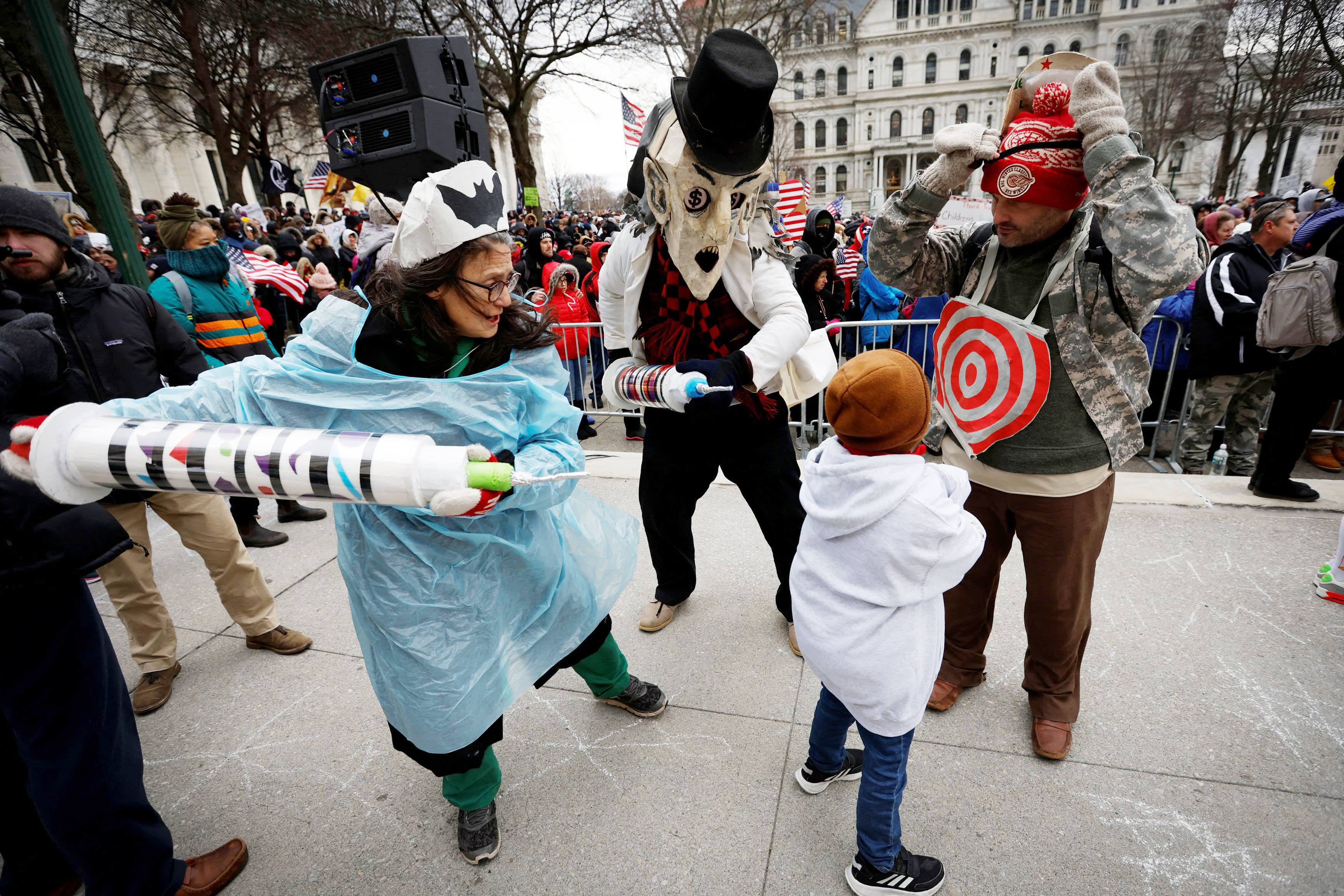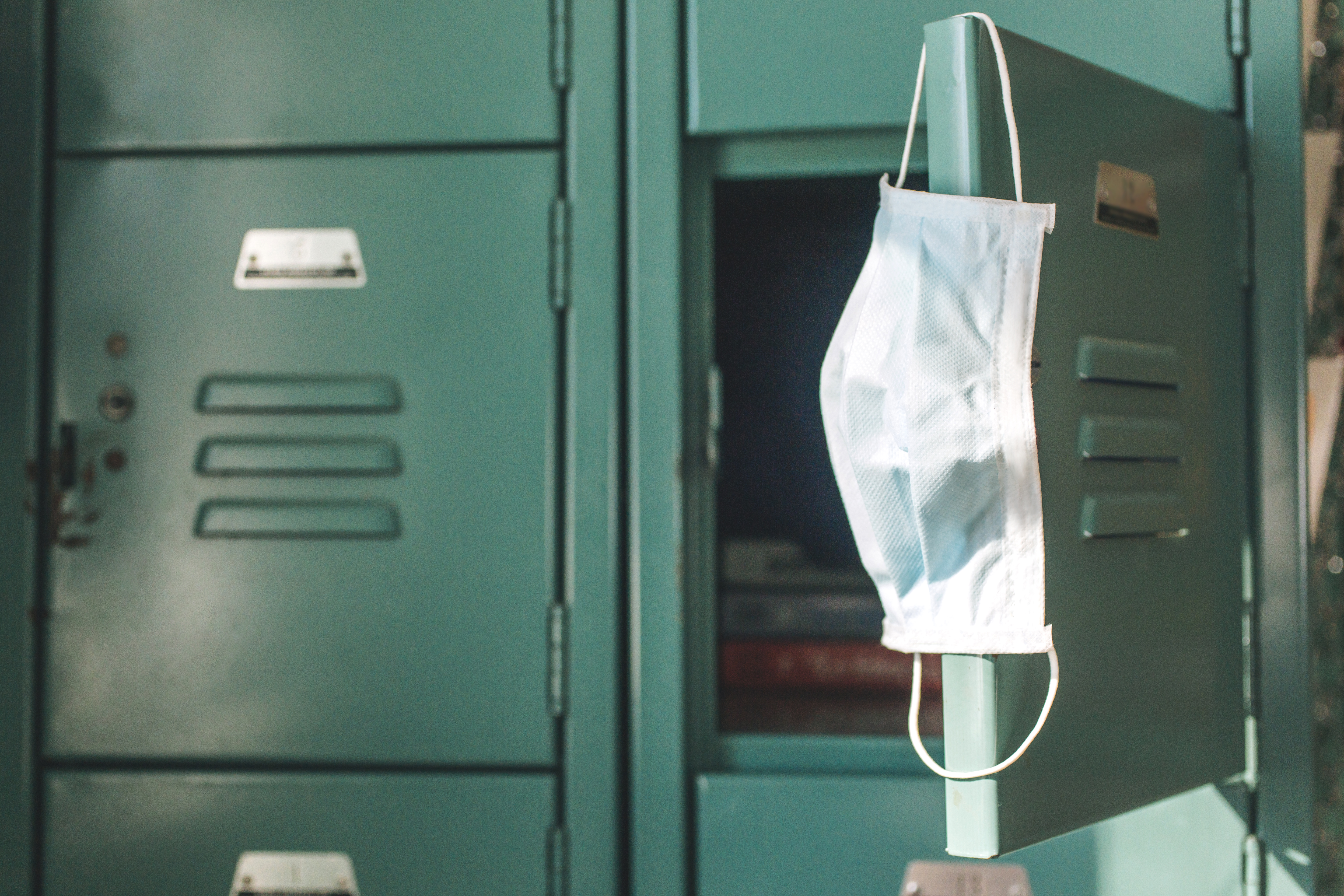It’s been a long two years for many families with children under 5, as the lack of an approved COVID-19 vaccine has disrupted school days and workdays, led to countless canceled plans and taken a toll on mental health.
Relief may finally be on the way. Pfizer asked the U.S. on Tuesday to authorize extra-low doses of its COVID-19 vaccine for children under 5, potentially opening the way for the very youngest Americans to start receiving shots as early as March.
If the vaccine is approved after being found safe and effective, it could give children a measure of protection, Dr. Claire Boogaard, medical director of Children’s National’s COVID-19 Vaccine Program, told News4 earlier Tuesday.
“This is all good news, that we’re able to start moving forward on vaccine authorization for the youngest ones. It’s also really good news that our numbers are declining, even though they’re still really high. So stay patient, be vigilant, but be optimistic. Hope is coming,” she said.
We're making it easier for you to find stories that matter with our new newsletter — The 4Front. Sign up here and get news that is important for you to your inbox.
Here are answers to some big questions on when COVID shots could be coming for young children, safety, the expected dosage and more.
Pfizer Is Developing a COVID-19 Vaccine for Kids Under 5
In an unusual move, the Food and Drug Administration urged Pfizer and its partner BioNTech to apply for authorization earlier than the companies had planned.
The nation’s 19 million children under 5 are the only group not yet eligible for vaccination against the coronavirus. Many parents have been pushing for an expansion of shots to toddlers and preschoolers, especially as the omicron wave sent record numbers of youngsters to the hospital.
If the FDA agrees, Pfizer shots containing just one-tenth of the dose given to adults could be dispensed to children as young as 6 months.
An open question is how many shots those youngsters will need. Pfizer is testing three shots after two of the extra-low doses turned out to be strong enough for babies but not for preschoolers, and the final data from the study isn’t expected until late March.
That means the FDA may consider whether to authorize two shots for now, with potentially a third shot being cleared later if the study supports it.
When Could COVID-19 Vaccines for Kids Under 5 Be Authorized?
The FDA's decision could come within weeks, but that isn’t the only hurdle; the Centers for Disease Control and Prevention also has to sign off.
D.C. physician and NBC News contributor Dr. Kavita Patel told News4 she expects families of young kids to get access to vaccines this spring.
“Children under the age of 5 should have an option to be vaccinated as early as March,” she said earlier Tuesday.
How Many Shots Would Young Kids Get, and How Far Apart?
Pfizer's primary series is administered three weeks apart. The third dose for young kids is being studied for administration at least two months after the second dose.
Patel explained: "The first two doses gets you at least the start of the antibody build […] and that third dose would really be the complete course."
Is the Pfizer Shot for Safe for Young Kids?
Early Pfizer data has shown the vaccine — which is administered to younger kids at one-tenth the strength of the adult shot — is safe and produces an immune response.
"In the 5 to 11 age range, we have seen no serious adverse events," Patel said.
Last year Pfizer announced the two-dose shot proved to be less effective at preventing COVID-19 in kids ages 2-5. Regulators encouraged the company to add a third dose to the study, on the belief that another dose would boost the vaccine's effectiveness, much like booster doses do in adults.
Allowing young kids to be vaccinated with a two-dose shot earlier would ultimately accelerate when they could get the expected stronger protection from a third dose.
Which COVID Shots Are Available to Kids Now?
Pfizer’s vaccine has been cleared for kids 5 to 17. The Moderna and Johnson & Johnson vaccines are authorized for adults 18 and older.
How Does COVID Affect Young Kids and How Many Kids Are Vaccinated So Far?
While young children are far less likely than adults to get severely ill from the coronavirus, it can happen, and pediatric COVID-19 infections are higher than at any other point in the pandemic.
“What we’re seeing right now is still a lot of hospitalizations and unfortunately some deaths in this age group,” said Dr. Sean O’Leary of the University of Colorado, who is on the AAP's infectious disease committee. If the FDA clears vaccinations for these youngsters, “that’s going to be really important because all of those hospitalizations and deaths essentially are preventable.”
COVID cases and hospitalizations have dropped at Children’s National after a huge omicron surge, Boogaard said. Many of the hospital's COVID patients have been unvaccinated, with many younger than 5, with no option for families to get shots.
This is definitely a move in the right direction, and hopefully will return us closer to normal.
Dr. Claire Boogaard, medical director of Children’s National’s COVID-19 Vaccine Program
Vaccines for kids age 5-12 were approved by U.S. regulators in November, though uptake of shots has been slower than U.S. officials hoped.
CDC data shows that nearly 87% of Americans 18 and older have received at least one COVID shot. Only about 30% of children 5 to 11 and about 66% of children 12 to 17 have received at least one shot.
Speeding the authorization of pediatric vaccines against COVID-19 has been a priority for more than a year of the Biden administration, which believes them critical to reopening and keeping open schools and day care centers — and for freeing up parents occupied by childcare responsibilities to return to the workforce.
If Most Kids Don't Get Very Sick If They Get COVID, What's the Big Deal?
The lack of a COVID vaccine for young children continues to have major effects on how and whether many parents are able to work. When a child is exposed to the virus and excluded from school or day care, parents are still scrambling to adjust their schedules and do their jobs. COVID exposures also are still regularly taking young kids away from their regular day care and school lessons.
Getting a vaccine for young children will be a step forward for everyone, Boogaard said.
Sign up for our Breaking newsletter to get the most urgent news stories in your inbox.
“The more people that are vaccinated, the less community spread, and the less policies we have restricting kids from entering schools, from socializing in school, from wearing masks,” she said. “This is definitely a move in the right direction, and hopefully will return us closer to normal.”



